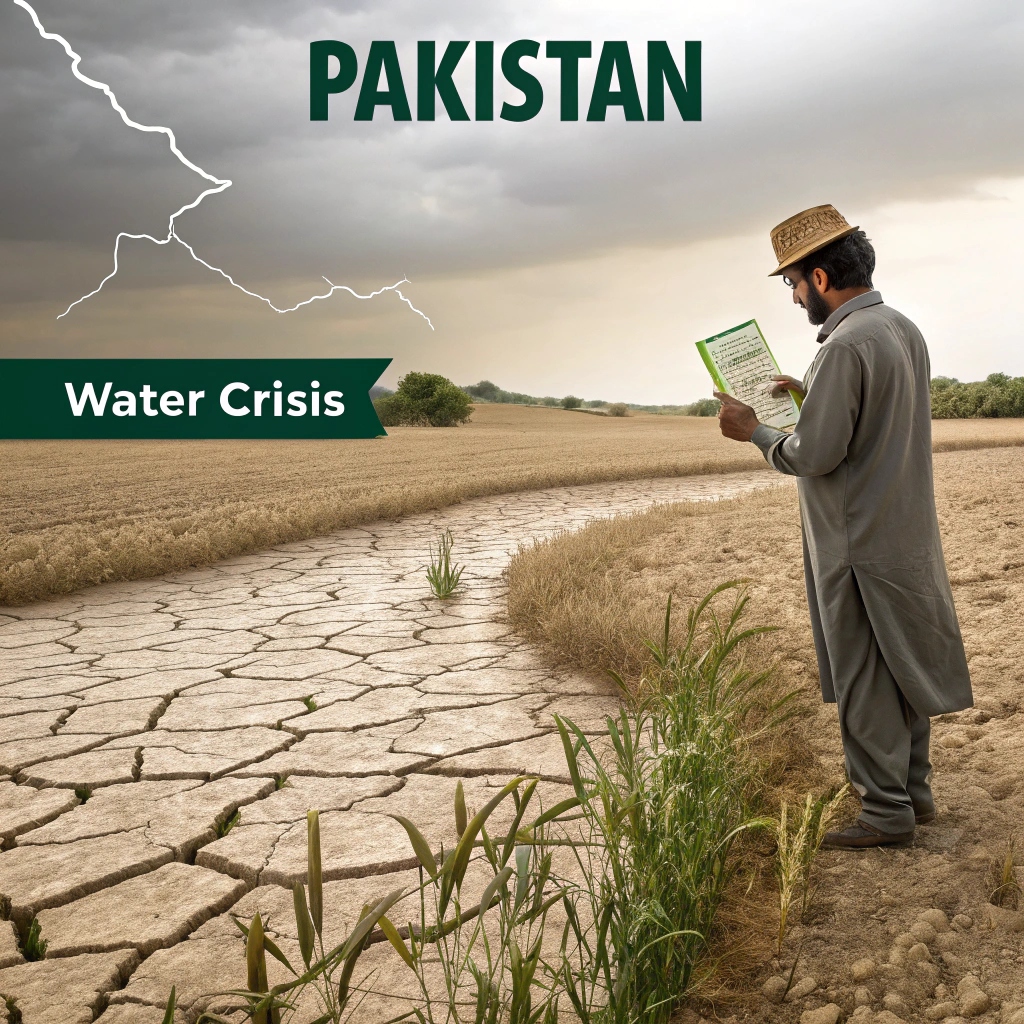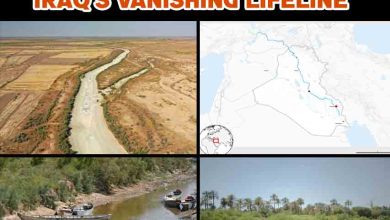Pakistan’s Water Crisis: Rethinking Crop Choices to Save Water
Pakistan's water crisis threatens agriculture and food security. Discover how smarter crop choices and modern irrigation can save water and sustain farming.
Pakistan’s Water Crisis: Why Smarter Crop Choices Are Critical
Pakistan, once water-abundant, is now facing an escalating water crisis. Decades of mismanagement, inefficient irrigation, and unsustainable crop selection have depleted groundwater reserves, particularly in Punjab, while causing severe waterlogging in Sindh. With agriculture consuming over 90% of the country’s water, immediate action is necessary to prevent mass displacement, food shortages, and economic instability.
The Real Issue: Mismanagement, Not Scarcity
The Indus Basin, one of the world’s largest river systems, receives around 140 million acre-feet (MAF) of water annually. However, Pakistan can store only 10% of this flow, compared to the global average of 40%. Under the 1960 Indus Waters Treaty, Pakistan was allocated the western rivers (Indus, Jhelum, and Chenab), but despite its greater water share, its storage capacity remains far below India’s. The 1991 Water Accord attempted fair distribution, yet poor reservoir management continues to waste available water, fueling interprovincial disputes.
Punjab’s Groundwater Crisis: The Cost of Water-Intensive Crops
Punjab, Pakistan’s agricultural heartland, is experiencing rapid groundwater depletion due to excessive extraction for water-thirsty crops like rice and sugarcane. Farmers extract around 50 MAF annually, causing the water table to drop by over a meter each year. A World Bank report warns that if this trend continues, Punjab’s groundwater may become irreversibly damaged, leading to a full-scale agricultural collapse.
Key Issues:
- Flood Irrigation: Wastes over 50% of water.
- Water-Intensive Crops: Sugarcane and rice dominate, despite being unsuitable for the region.
- Over-Extraction: Farmers rely heavily on tube wells, accelerating depletion.

Before the 1980s, sugarcane cultivation was primarily limited to Sindh and Khyber Pakhtunkhwa. Today, Punjab’s vast sugarcane fields are draining groundwater at an unsustainable rate. The government must implement crop zoning policies to restrict sugarcane cultivation and encourage alternative, drought-resistant crops.
Sindh: Waterlogging, Salinity, and Seawater Intrusion
While Punjab faces water scarcity, Upper Sindh suffers from waterlogging and salinity due to excessive irrigation and poor drainage systems. Over 50% of irrigated land is now waterlogged or saline, rendering fertile lands useless. Meanwhile, Lower Sindh struggles with seawater intrusion as freshwater flows to the Indus Delta have dwindled, shrinking agricultural lands and displacing communities.
Sindh’s Water Issues:
- Leaky Canals: Contribute to waterlogging.
- Rice & Sugarcane Farming: Worsens salinity.
- Seawater Intrusion: Threatens food security in coastal areas.
The Solution: Crop Zoning & Smarter Water Management
To combat Pakistan’s water crisis, the government must implement strict crop zoning policies based on regional water availability and climate suitability.
Recommended Crop Zoning:
Punjab
- Northern Punjab: Millet, sorghum, lentils, chickpeas, olives, barley.
- Central Punjab: Wheat, maize, potatoes, mustard, canola (limit rice & sugarcane).
- Southern Punjab: Cotton, sunflower, dates, mangoes, citrus, pulses.
- Western Punjab: Oilseeds, fodder crops, pulses, drought-resistant grains.
Sindh
- Upper Sindh: Shift from sugarcane & rice to sunflower, mustard, canola, cotton, pulses.
- Lower Sindh: Grow salt-tolerant crops like date palms, millet, barley, moringa, and guar.
Government Actions: Incentives & Regulation
A phased, incentive-driven approach is needed to encourage farmers to adopt water-efficient crops.
Proposed Measures:
- Financial Incentives: Provide cash rewards & subsidies for low-water crops.
- Minimum Support Price: Ensure profitability for alternative crops.
- Water Regulations: License and meter tube wells, introduce tiered pricing.
- Modern Irrigation: Promote drip & sprinkler systems while gradually banning flood irrigation.
- Farmer Training: Establish pilot farms to showcase efficient farming techniques.
Conclusion: Reform Now or Face an Irreversible Crisis
Pakistan’s water crisis is not a result of scarcity but mismanagement and outdated agricultural practices. By implementing crop zoning laws, modernizing irrigation, and enforcing water conservation policies, Pakistan can secure its water future. Delays will only lead to catastrophic consequences for agriculture, food security, and economic stability. The choice is simple: reform now or face an irreversible crisis.
Internal & External Resources:
- Internal Links:
- External Links:







